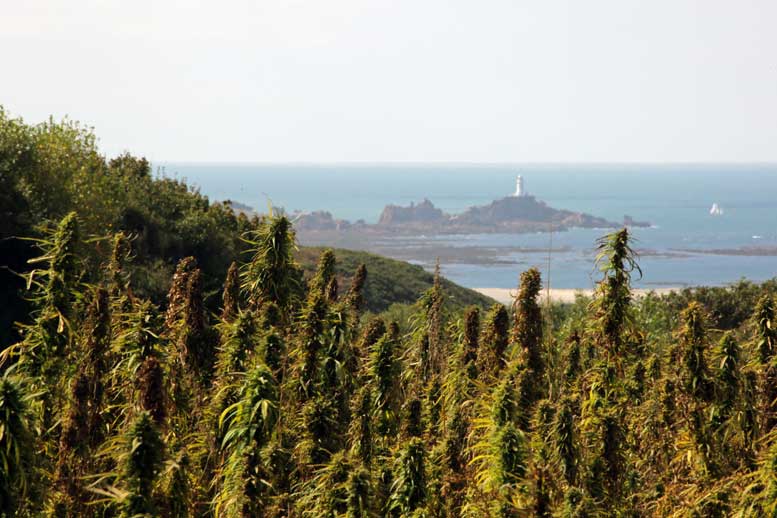A British Isles CBD producer said authorities have blocked it from exporting its products to the UK because they contain THC, illustrating lingering regulatory inconsistencies for the popular compound in a key European market.
Jersey Hemp, based in Warwick Farms, said in a press release that it has shut down its growing and marketing operations after the Home Office declared its products illegal controlled substances that cannot be imported into the United Kingdom. Jersey’s Chief Pharmacist and Health Minister jointly endorsed the Home Office’s classification of CBD products made by Jersey Hemp as drugs, according to the company.
Under FSA review
As a Crown Dependency, Jersey has close political and economic ties with the UK, but is independent in trade relations, meaning import and export licenses are required for products crossing the border. In order to export cannabis outside of Jersey, licenses are required under the island’s Misuse of Drugs Law 1978 and must be obtained for each shipment. Also, an import license is needed “before controlled drugs are imported into the UK,” according to the Home Office.
Jersey Hemp’s products have presumably been on the market in the UK since at least Feb. 13, 2020, as required under UK’s Food Standards Agency (FSA) rules aimed at clearing up the CBD gray market that existed before that date. Seven CBD products from Jersey Hemp are now moving through the FSA’s safety approval process for new (“novel”) foods while they remain on sale. Jersey Hemp products are available online, in retail outlets, and via Amazon, and the company recently announced a “sales partnership” agreement with grocery giant Tesco.
‘Controlled cannabinoids’
“CBD in its pure form is not a controlled drug, but if a CBD product contains THC or other controlled cannabinoids then it is likely that the product would be controlled,” the Home Office told BBC Jersey. All CBD contains trace amounts of THC, including some 3,000 now being considered by the FSA.
In a statement issued jointly, Kirsten Morel, Jersey’s Minister for Economic Development, Tourism, Sport and Culture, and Karen Wilson, Minister for Health and Social Services, were circumspect in their comments, saying only: “All businesses that are licensed to cultivate cannabis in Jersey are responsible for making sure they comply with the relevant legislation in the jurisdiction into which they export products.”
And: “We are aware that Jersey Hemp is in contact with HM Government with respect to exports to the UK – as a separate jurisdiction, we cannot comment on those talks and would also not speculate on their outcome.
‘Singled out’
Calling the Home Office’s decision “a clear error in both law and judgment,” Jersey Hemp said the crackdown on its products, if upheld, “would effectively render the entire CBD market in the UK illegal.”
“If CBD were truly illegal, the UK Home Office would logically ban the import and sale of all CBD products in the UK,” the company said.
“The directive unfairly singles out Jersey Hemp, excluding them from importing their products into the UK market, while allowing non-licensed CBD products from around the world to freely enter the UK market,” according to the company, which notes that all CBD products on the market in the UK are imported.
Staff laid off
Jersey Hemp said its products meet all criteria for exemption from drug designation under the UK’s Misuse of Drugs Regulations 2001.
As the company halted cultivation and marketing, it has laid off more than half of its staff, according to co-owners David Ryan and Blair Jones. “We’ve got to really take a step back and consider the position we find ourselves in,” Ryan said. “It’s very frustrating, pretty sad; the impact on us has been devastating.”
Jersey Hemp was granted a license to grow hemp for CBD in 2019, drawing government support. At the time, the company claimed it was developing the capacity to produce 30 to 40 tons of hemp annually and announced it had secured £2 million ($2.68 million) in investment needed to compete with producers from China, Eastern Europe and the Americas, where most CBD sold in the UK is made

